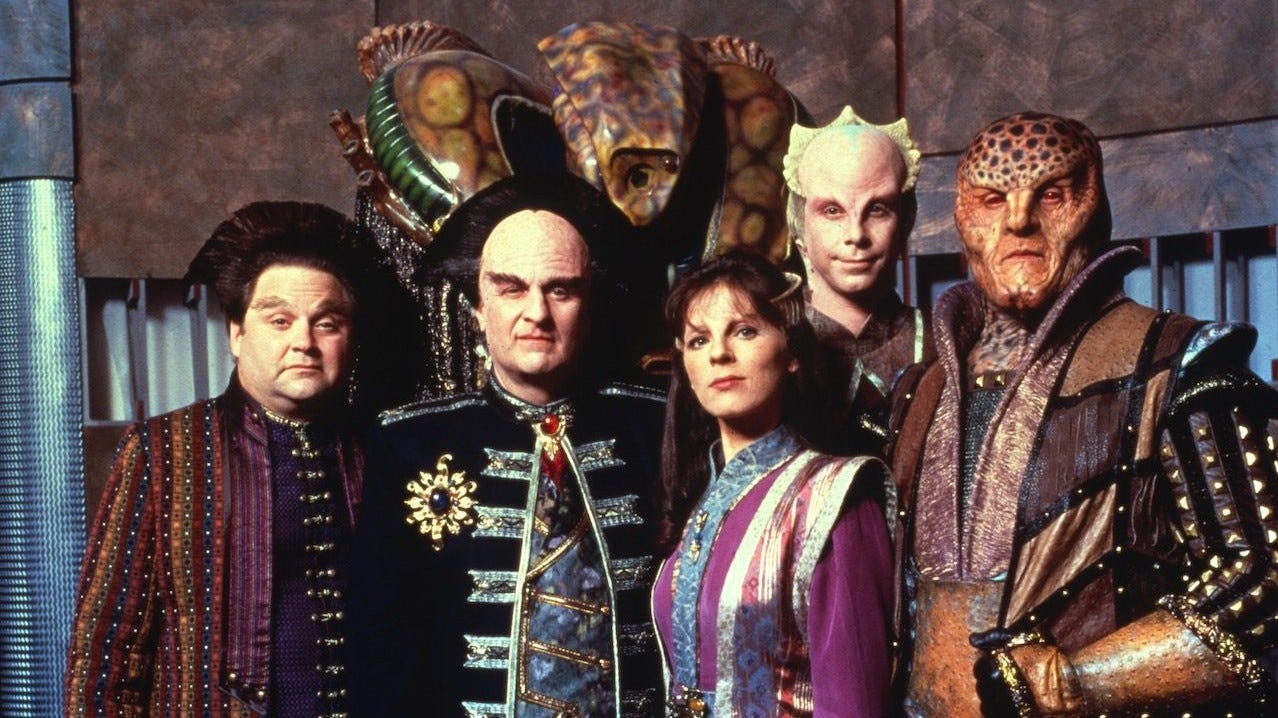The Seven Questions
Introspective wisdom from Babylon 5
It’s one of the essential nerd questions: Star Trek or Star Wars? Personally, I’d pick Babylon 5, mostly because I loved the wonderful mix of aliens and the interplay between their different values.
It’s also quite profound in some ways. For example, in The Parliament of Dreams, all the races are expected to perform a ritual that reflects their religious beliefs. So the humans present a whole host of religious leaders - over a hundred of them, starting with an atheist. It’s a magnificent curveball from writer and creator J. Michael Straczynski that clues us in to the fact that the show is, at heart, all about belief systems.
However, where the show really excels is in its depiction of the mysterious Shadows. They keep asking the same question, over and over again: what do you want? And, as it turns out, they mean it in an almost Thelemic sense, not simply personal gratification or reward (though that is a part of it). What is it that you really, deep down, wish for? Once the characters start to understand that, it completely changes everything.
This question pervades the entire storyline, and as the story develops, other races start asking similar questions. In the sequel series, Crusade, they’re all spelled out, and assigned to each of the major alien races (plus the Technomages, who include multiple races).
Who are you? (The Vorlons)
What do you want? (The Shadows)
Why are you here? (The Humans)
Where are you going? (The Minbari)
Do you have anything worth living for? (The Narn)
Who do you serve? (The first Technomage question)
Who do you trust? (The second Technomage question)
Even though these questions are just plot elements from a 90’s TV sci-fi show, I rather like them as tools for introspection. Meditating on these seven topics is a way to understand what matters to me, my values, and what I’m doing with my life. As I told myself some years ago: “When you can answer all seven questions, you've begun to understand life. When you're happy with all seven answers, you've succeeded.”
What I find really interesting is that as I get older, my responses to all of these questions are becoming simpler. When I started doing this, I could have written an essay about any of these topics. Now, I’m coming to realize that I don’t need to be that complex - and the simpler my answers are, the more clarity I have and the more content I feel. (That doesn’t mean they’re easy, just better defined.)
Incidentally, the hardest of these for me are the first and last. I keep changing, which makes it hard to pin down who I am, at least in any kind of permanent sense. And trust is something I struggle with - not so much because I distrust everyone, but because I’m often too trusting, and I have to keep asking myself whether that trust is warranted.
But knowing what I want and what I live for has been transformative. It’s given me a sense of stability and clarity that has enabled me to weather all sorts of ups and downs. My life may have changed, and it’s often outside my control, but my purpose has remained constant. And, most importantly, I’ve always been able to find a way to remain true to that despite everything.


